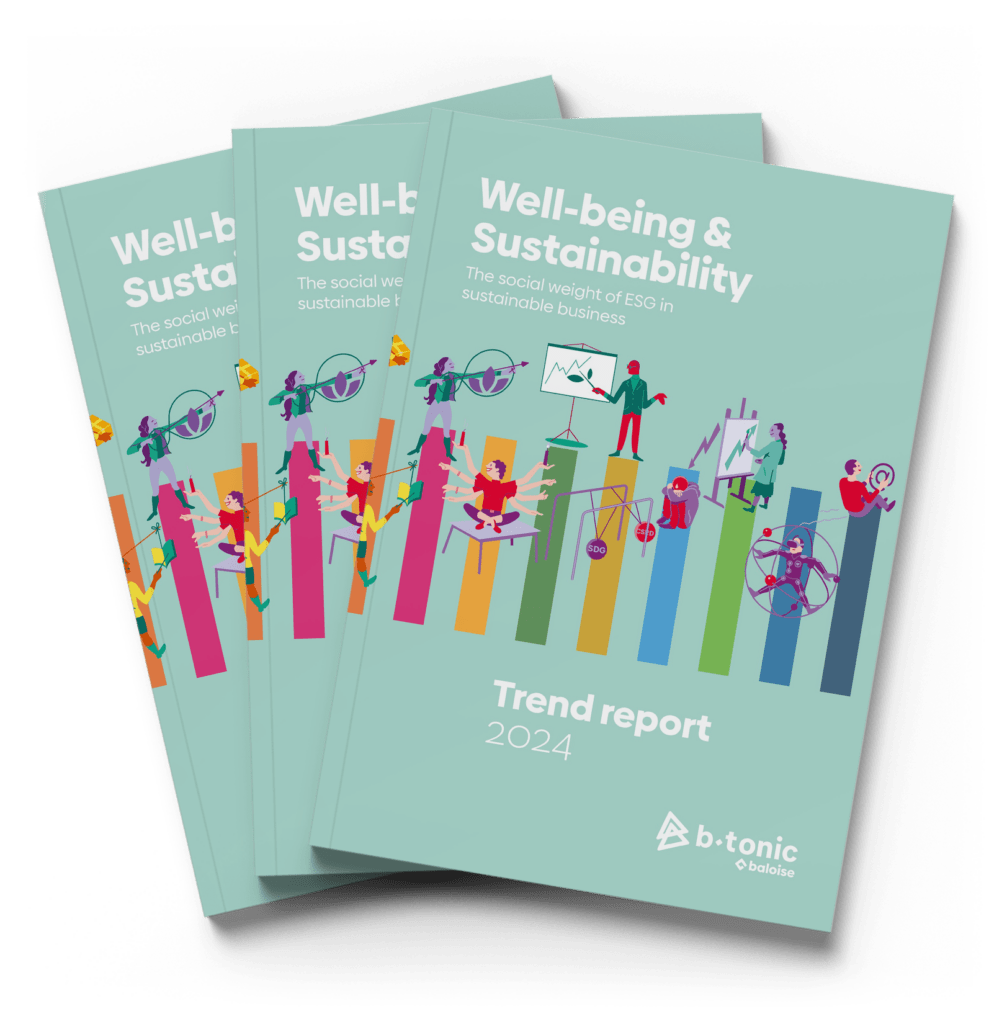A way out of the paradox of hybrid work
Hybrid work is here to stay and that is great news, both for the company and the employee. But how are we going to implement this new way of working successfully and sustainably? Well-being platform B-tonic, subsidiary of Baloise, wrote in collaboration with Federgon and FEB a whitepaper that wants to provide a practical framework for this.

More than two years after the outbreak, Belgium has the COVID-19 crisis fairly well under control, and almost all businesses and organizations are up and running once again. And immediately a serious problem arises: the so-called “office prowlers” are eager to return to the office full-time, while the “house sparrows” prefer to work 100% remotely. The remaining group seeks a solution somewhere in between. The arguments from both prowlers and sparrows largely align: the need for focus time, collaboration, and work-life balance. Microsoft’s CEO, Satya Nadella, gave a term for this phenomenon: the ‘Hybrid Work Paradox’. In this whitepaper, we aim to find a way out of this paradox. It is essential that we do not simply reduce hybrid work to remote work without considering everyone’s well-being. Such an opportunity to rejuvenate and sustainably transform the work culture arises only once in a generation. The time is now.
Important take-aways from the whitepaper
- The role of the manager is changing and becoming more important than ever
- Employees with a high level of hybrid work are less prone to a burnout
- Mutual trust is the key to sustainable success of the hybrid work model
- The 3 main challenges of new way of working are: need for focus time, optimal collaboration and better work-life balance
- There is no one size fits all hybrid work solution. Each company must develop a customised model adapted to its culture and organisation
- A new and adapted legal framework is necessary to protect employee and employer
Research shows employees with high levels of hybrid work are at lower risk of burnout
Well-being is at the centre
There is no blueprint for the new, hybrid work. Even the most progressive and innovative companies have not quite figured out what works and what does not. The success of a hybrid model will largely be determined by the individuality of the industry, company demographics, the available talent pool, the culture and DNA of the organisation and customer expectations. What is certain, however, is that the well-being, both physical and mental ergonomics, of employees and managers plays a central role.
Less burnout
Research shows that employees with high levels of hybrid work are less at risk of burnout and experience greater job satisfaction. So does that mean that companies that switch to hybrid work will automatically see employee well-being increase? No. What it does mean is that a hybrid work environment provides a good framework for improving well-being. Factors such as work-life balance, work intensification and technology overload hardly differ between companies adopting hybrid working at high or low levels. The most important lever to achieve inspired and productive (hybrid) employees is and remains trust. That does not refer to childish and naive trust, but trust that rests on a solid foundation of good agreements and a clear and psychologically safe framework within the organisation.





